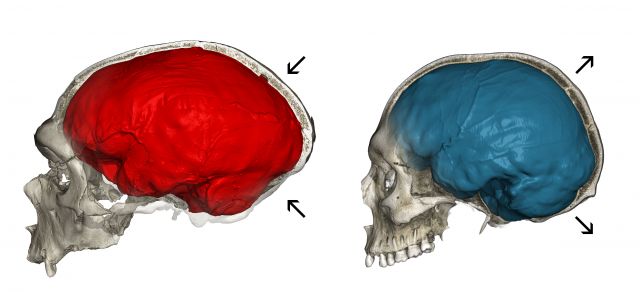
A Year in Friday’s Elk!
Thanks to everyone for subscribing to this newsletter through the year. Wrapping up 2018, I have some additional news to share about She Has Her Mother’s Laugh
1. The New York Times Book Review named it one of the notable books of the year.
2. The Guardian picked it as the Science Book of 2018.
3. She Has Her Mother’s Laugh also got onto a variety of other Best-of-2018 lists, including The Sunday Times (UK), Kirkus Reviews, New Scientist,Smithsonian,Science News, and Science Friday
4. I made the long list for the PEN/EO Wilson Literary Science Writing Award alongside some amazing writers–both veterans and first-timers. Check them all out!
At the end of She Has Her Mother’s Laugh, I write about the discovery of the gene-editing technology called CRISPR, and the power it offered to alter heredity. As I was wrapping up the manuscript, scientists were starting to unveil experiments in which they altered DNA in human embryos. An international call went out to resist taking the next step–to implant those embryos and allow them to become babies.
But last month, a Chinese scientist named He Jiankui ignored that call and decided to cross the line. He edited a gene in two embryos. And then He announced had developed into twin baby girls born in November.
For the Sunday Review section of the New York Times, I tried to put this news in some historical context, drawing on a section of She Has Her Mother’s Laugh about “three-parent babies.” This is new territory in some ways, and yet, in another sense, we’ve been here before. Genetically modified people already walk among us.
You can also listen to my conversation with Joshua Johnson on NPR’s 1A about what He’s misadventures portend.
1. The Science Times section of the New York Times recently celebrated their 40th anniversary. As part of a special package of essays observing this event, I wrote about what we’ve learned so far about how humans evolved, and the most interesting questions left to explore.
2. A big part of the story of human origins is the evolution of our intelligence. But intelligence of different sorts has arisen on other branches of the animal kingdom. I wrote about the paradox of intelligence in the octopus and other cephalopods–animals that seem to defy the pattern seen in other smart creatures.
3. A lot of people are concerned about CRISPR because of how it might alter the future of heredity. I’d argue that a few people who get disease-causing mutations removed from their DNA will have a minuscule impact on the inheritance we leave to future generations. In She Has Her Mother’s Laugh, I argue that we must also consider the environmental inheritance humans leave for their descendants. And if we look back at a catastrophic burst of climate change 252 million years ago, it bodes ill for our legacy.
4. For my most recent column, I wrote about what happens when people inherit certain genes from Neanderthals. It turns out that they can slightly reshape our brains. This research may give scientists clues to the evolutionary steps that made our brains so different from that of extinct humans. (In the figure above, the red brain is a Neanderthals, the blue a modern human’s.)
I’ve added a few more talks to my itinerary for the new year. If you’re in Adelaide, Boston, or anywhere else on the list, I hope you can join me!
January 15, 2019 New York: House of Speakeasy, “Secrets and Lies”
February 16, 2019 Washington DC AAAS Topical Lecture: “Heredity: Our Defining Mystery”
February 20, 2019 Connecticut College, New London CT: “The Deep History of Global Affairs”
February 28, 2019 Harvard Museum of Natural History: A Conversation with David Quammen. Details to come.
March 3, 2019 Adelaide Writer’s Week
March 7, 2019 University of Illinois, Urbana-Champaign. Thomas M. Siebel Lecture Series in Science and Society. Details to come.
April 9, 2019 Wellesley College. Mayer Lecture. Details to come.
May 25-26, 2019 Copenhagen: Bloom Festival. Details to come.
If you’ve enjoyed reading She Has Her Mother’s Laugh, please rate/review it on your favorite book site, such as Goodreads or Amazon. Thanks!
You can find information and ordering links for my other books here. You can also follow me on Twitter, Facebook, Goodreads, and LinkedIn. If someone forwarded this email to you, you can subscribe to it here.
Best wishes, Carl
Originally published December 14, 2018. Copyright 2018 Carl Zimmer.